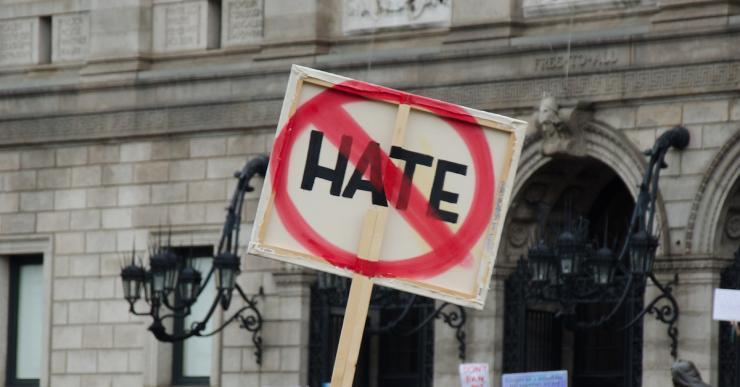Study Analyzing Anti-Asian Tweets Shows Online Hate Speech is Contagious
May 03, 2021 — Atlanta, GA

As the United States entered lockdown in March of 2020, an identifiable uptick in anti-Asian hate crimes, both physical and online, spurred the longest study to date for anti-Asian hate and counter hate on social media.
Led by School of Computational Science and Engineering Assistant Professor Srijan Kumar, the team of Georgia Tech researchers expanded on a study started last year analyzing 30 million tweets. To date, the team has successfully analyzed over 200 million tweets, identifying nearly 1 million hateful users targeting Asian groups.
“Because social media and web platforms have become such an integral part of our life and shape our discussions, beliefs, and political opinions, we wanted to look at how racism was happening not just in the real world, but also online,” said Kumar, the primary investigator who began the study last year.
“And this research gave us a means to specifically look at this phenomenon of anti-Asian hate through the lens of social media,” he said.
[Related News: Predicting Hate Crimes Targeting Asian Americans Amid Covid-19 Outbreak]
The tweets were analyzed using natural language processing classifiers which looked at the content of the tweet based on key terms and hashtags. Specifically, three classifiers were able to sort tweets according to whether they were hateful, supportive, or neutral about Asians or Asian Americans.
“One of the most surprising insights that we found, and the one that is most impactful as well, is that hatefulness is contagious,” said Kumar.
According to the team’s findings, people who followed others who tweeted hateful messages were more likely to tweet anti-Asian sentiments. Comparatively, the data showed that while not as quickly to spread, messages that were supportive to Asian communities had a 10 percent likelihood of positively impacting their social neighbors and followers.
Kumar said, “When people tweet counter speech or pro-Asian sentiments, that reduced the likelihood of their neighbors being hateful. So, these findings suggest that in order to inoculate people against hate, spreading positive messages will create a better environment for not only for your neighbors but also for the rest of your social ecosystem.”
According to the study, the largest spike of positive messages supporting the Asian community were found directly after the Atlanta Asian spa shootings while the largest spike of hate speech targeting Asians were seen after the hashtag #Chinaviurs began trending. To this day, the peaks have stabilized to around 5,000 hateful tweets per week with roughly 10 percent of tweets being spread by artificial users or bots.
“One of the most important reasons why we are doing this is so that it can be used to make society and the world a safer place,” said Kumar.
To do this, the research team is looking to collaborate with agencies and law enforcement who are interested in monitoring and providing safe spaces for minorities.
“The web and social media are major platforms where ideas emerge and form so it’s very important for safety focuses, both in the online and real world. And we are interested in seeing how this digital work can impact our physical world,” said Kumar.
Kristen Perez
Communications Officer




